From the Chicago Reader (November 8, 1991). — J.R.
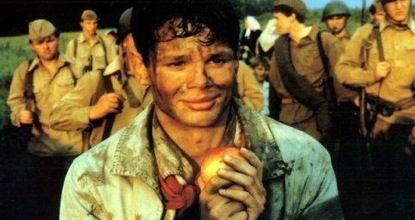
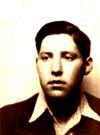
EUROPA EUROPA
**** (Masterpiece)
Directed and written by Agnieszka Holland
With Marco Hofschneider, Rene Hofschneider, Delphine Forest, Andre Wilms, Julie Delpy, and Halina Labonarska.
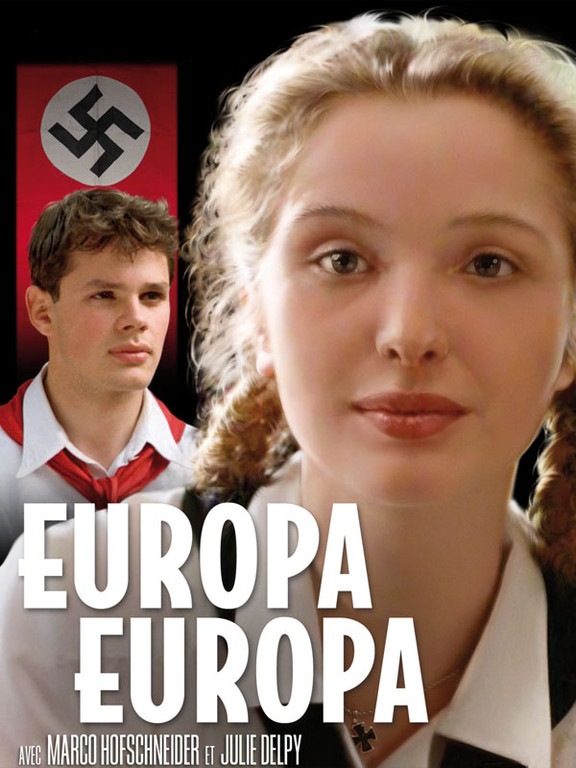
Solomon Perel was born in Peine, Germany, in 1925, the youngest child of a Polish-Jewish shoe merchant. He survived World War II first in a Soviet orphanage (1938-41), then by posing as an Aryan at the most prestigious and elite Hitler youth school in Germany. The only giveaway sign of his Jewish identity was his circumcised penis, which he had to keep hidden at all costs. (At one point, he even made an amateurish and painful surgical attempt to “uncircumcise” himself.) After the war, he emigrated to Palestine as a Jew. At the end of Europa Europa — director Agnieszka Holland’s adaptation of Perel’s autobiography — the real Solomon Perel tells us, “When I had sons, I didn’t hesitate to circumcise them.” The film concludes by showing us Perel today, at age 65, in Israel, singing a familiar Hebrew song.
But are we truly convinced of his Jewishness? On the prosaic level we certainly are: obviously Solly Perel is a Jew. But on the philosophical, meditative level established during the course of this remarkable film, we may be somewhat less certain. Read more
From the March 2, 2001 Chicago Reader. –J.R.
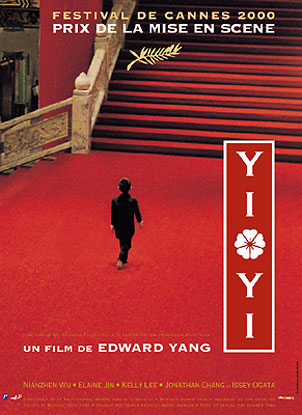
Yi Yi
****
Directed and written by Edward Yang
With Wu Nien-jen, Elaine Jin, Kelly Lee, Jonathan Chang, Issey Ogata, and Ke Suyun.
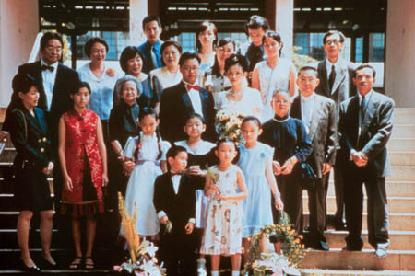
“Happy families are all alike,” begins Anna Karenina. “Every unhappy family is unhappy in its own way.” The way in which the Jians, the central family in Edward Yang’s 173-minute Yi Yi, are unhappy is difficult to pinpoint in a word or phrase, but Yang sees this father, mother, teenage daughter, eight-year-old son, and grandmother as the five fingers of a single hand, each one gradually becoming paralyzed and isolated.
Yang’s films are all set in Taipei, and only one of them, A Brighter Summer Day, isn’t contemporary. One thing that’s special about them is that they don’t coast along on the actions of a single hero or protagonist. The best of them — in descending order, A Brighter Summer Day (1991), Yi Yi (2000), Taipei Story (1985), and Mahjong (1996) — are about groups more than individuals; in A Brighter Summer Day the group is a class of high school boys in the early 60s, in Yi Yi it’s a screwed-up middle-class family in the late 90s, in Taipei Story it’s three separate troubled generations during Taiwan’s economic boom in the mid-80s, and in Mahjong it’s a dispersed pack of ailing and confused individuals in the mid-90s who are driven nuts by capitalism, or by what Yang calls “a Confucian confusion” about capitalism. Read more
From Film Comment (January-February 1975). (January 23, 2012 update: Thanks, once again, to the ever-vigilant Ehsan Khoshbakht for spotting a few typos here and thus enabling me to correct them.)– J.R.
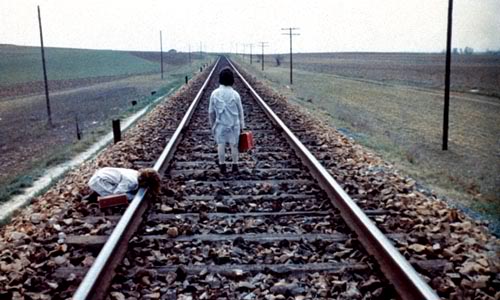
October 8: Victor Erice’s EL ESPIRITU DE LA COLMENA (THE SPIRIT OF THE BEEHIVE). I’ve been trying all weekend to come up with an adequate description of this lovely Spanish film, but I can’t get anywhere. A colleague recently spoke of the film as “beguiling,” which seems like an honest start. Two remarkably expressive little girls, Ana Torrent and Isabel Telleria, see James Whale’s FRANKENSTEIN at a traveling film show that stops in their village in Castille. Afterwards, Isabel explains to her sister that the monster is still alive — and indeed, he makes a brief appearance in the final reel. The girls’ father is a bee-keeper who broods over Maeterlinck, while the mother writes unexplained letters to someone in France. Isabel plays dead for a bit, and Ana believes her. Ana befriends a fugitive soldier who is eventually killed.
I don’t know what sense to make of either the plot or Erice’s beautiful honey-tone colors and honeycomb compositions, but I find the film haunting and rather spellbinding in a muted way, and emotionally it all seems to add up to something. Read more






